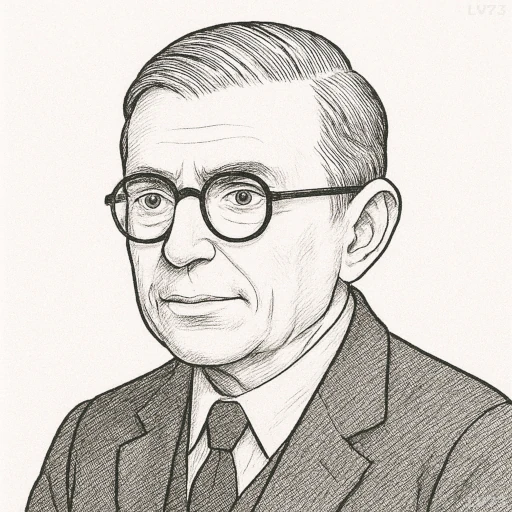“Words are loaded pistols.”

- June 21, 1905 – April 15, 1980
- Born in France
- Philosopher, novelist, playwright
table of contents
Quote
“Words are loaded pistols.”
Explanation
In this quote, Sartre emphasizes the power and danger inherent in language. Just as a pistol can be loaded and ready to fire, words have the potential to be weaponized—they can have a profound impact, either constructive or destructive, depending on how they are used. This idea reflects Sartre’s existentialist belief in the responsibility that comes with communication. Words can shape reality, influence opinions, and even cause harm, just as a gun can cause injury or death if used recklessly or maliciously. The quote highlights the active force of language—how the things we say are not just neutral symbols but can act as tools for power, manipulation, or change.
Sartre’s view suggests that language is not something passive, merely reflecting the world; rather, it is a dynamic force that can be used to create or destroy. When used thoughtfully, words can empower and build connections, but when used carelessly or maliciously, they can hurt, manipulate, and tear apart relationships or societies. This connection between words and violence reflects the idea that communication is not only an exchange of ideas but also a moral act that carries weight.
In modern contexts, this quote can be applied to the way language is used in media, politics, and social discourse. Whether in the form of propaganda, rhetoric, or even online communication, words have the power to shape public opinion, incite conflict, or bring about change. Sartre’s words remind us of the moral responsibility we have when we communicate. Words, like loaded pistols, have the potential to cause significant impact, and how we use them can define the outcome of interactions, conflicts, and even societal movements. The quote serves as a warning to recognize the power and consequences of what we say, urging us to use language consciously and responsibly.
Would you like to share your impressions or related stories about this quote in the comments section?

